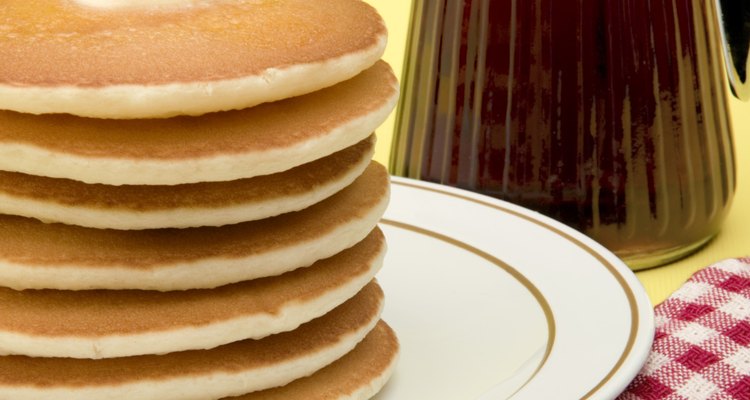
Jupiterimages/liquidlibrary/Getty Images
The very best pancakes of all are homemade from scratch, but not every cook is alert enough or organized enough to prepare them first thing in the morning. For those occasions, prepared pancake mixes are a more convenient and reliable option. The shelf life of a pancake mix is very good, but it isn't unlimited. Over time, some problems can occur.
Pancake Mix Basics
Pancake mixes combine all the ingredients you'd need to make pancakes in a convenient dry form. The simplest varieties call for milk and eggs, while others are "complete" and only need to be mixed with water. They combine flour and a leavening ingredient, such as baking powder, and many include vegetable oil, dairy solids or dehydrated egg. As a rule, mixes will keep for at least a year in your pantry, unless you live in an especially hot or humid climate. Eventually, its quality and flavor will begin to suffer, although the mix usually remains safe to eat.
Rising to the Occasion
One of the most common problems that occurs as your pancake mix ages is a loss of rising power. The baking powder that makes your pancakes light and fluffy contains both an acidic and an alkaline ingredient, which remain inert when they're dry but react with each other when they're moistened. Moisture in the atmosphere can cause a slow-motion version of that reaction, gradually using up your leavening. The pancakes won't have any off flavors, but they'll be flat and leathery rather than light and fluffy. Compensate for that by adding fresh baking powder from your cupboard, then replacing the pancake mix at your next opportunity.
The Nose Test
Many pancake mixes contain fats, either in the form of vegetable oil or dried egg. The oil is usually hydrogenated to extend its shelf life, and most brands include preservatives and antioxidants as well. Those prevent the fats from reacting with oxygen in the atmosphere, which eventually breaks down the fat molecules and produces rancid flavors. Rancidity gives your pancakes an unpleasant flavor and odor, which is easily detected once you've added liquid to the dry mix and started cooking. Discard any mix that smells rancid.
The Taste Test
As your pancake mix reaches and passes its freshness date, it will gradually begin to lose flavor. Over time, it might come to taste more like its box than a well-made pancake. That stale flavor is a sign of age and oxidation. It's not dangerous, but it does mean that your pancakes aren't pleasant to eat. To minimize staleness and extend the shelf life of pancake mix, keep it in its original packaging -- often impregnated with preservatives -- or in an airtight, food-grade container.
A Few Rare Cases
Although poor rise or flavor are the most typical issues after a stretch of time in the pantry, there are a few others. For obvious reasons, discard any mix with signs of insect or rodent pests. Also, throw it out if it shows signs of contamination by any liquid. If you're allergic to molds, avoid any mix that hasn't been tightly sealed. In rare instances, mold spores can find their way into the mix and trigger an unpleasant or even life-threatening allergic reaction.
Related Articles

Can You Make Cupcake Mix Without Baking ...
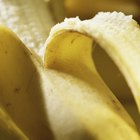
How to Replace Butter With Banana in ...
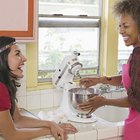
Do You Use a Wire Whip or Flat Beater ...
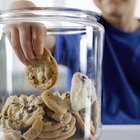
Can Humidity Affect Cookies?

How to Use Bisquick Shake 'N Pour
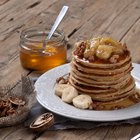
Low-Sodium Pancake Mix
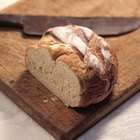
How to Revive a Sourdough Starter Gone ...
Baking Soda or Baking Powder to Make a ...
Can Dry Pudding Be Added to Cake Mixes?

What if You Forget to Put Eggs Into ...

How to Store Baking Soda Long-Term

Can You Freeze Pancake Batter?

Why Is My Cake Dry & Crumbly?
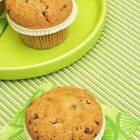
How to Keep Muffins From Going Moldy
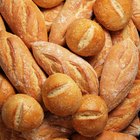
When Does Dry Yeast Expire?

What Works With Baking Soda Besides ...

Can I Bread Pork Chops With Pancake Mix?

Can Self Rising Flour Substitute for ...
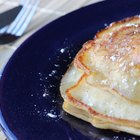
How to Use Muffin Mix to Make Pancakes
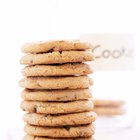
How to Use Expired Cake Mix
References
- Still Tasty: Pancake/Waffle Mix, Dry, Commercially Packaged
- Aunt Jemima: Preparation Tips
- Snopes.com: Mix Master
- On Food and Cooking: The Science and Lore of the Kitchen; Harold McGee
Writer Bio
Fred Decker is a trained chef and prolific freelance writer. In previous careers, he sold insurance and mutual funds, and was a longtime retailer. He was educated at Memorial University of Newfoundland and the Northern Alberta Institute of Technology. His articles have appeared on numerous home and garden sites including GoneOutdoors, TheNest and eHow.
Photo Credits
Jupiterimages/liquidlibrary/Getty Images